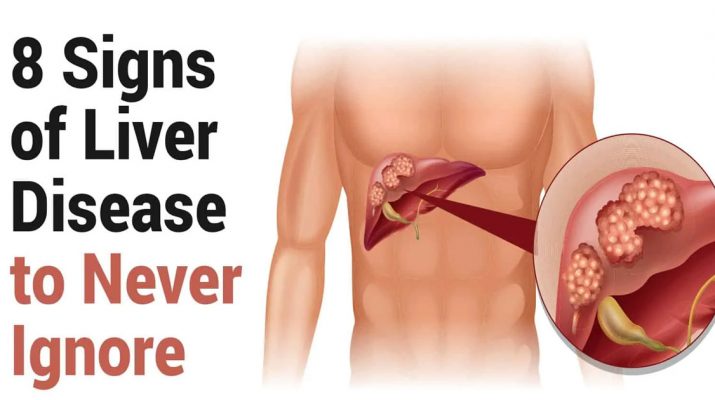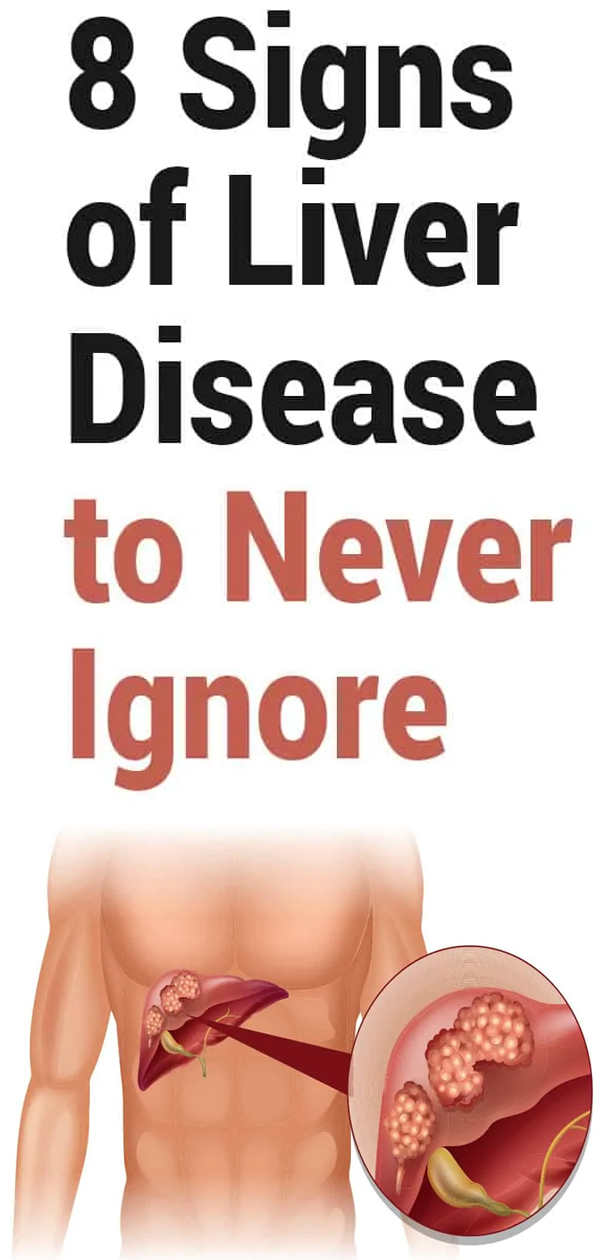According to a study published by the Centers for Disease Control and Prevention, more than 4.5 million Americans were officially diagnosed with a liver-related disease in 2018. And in the same year, liver-related diseases claimed the lives of more than 42,000 individuals.
A separate study published by MarketWatch, a financial information website that provides business news, analysis, and stock market data, shows that the death rate associated with chronic liver diseases rose annually since 2000, affecting primarily those between the ages of 45 to 64.
Let’s further put this into context. The study ran from 2000 through 2015. Ultimately, it revealed that the death rate among individuals within this age group with liver disease increased by 31%.
What You Should Know About The Liver
Now we have a general understanding of the statistics as they relate to liver disease. So let’s take a closer look at the role of the liver when it comes to overall health.
The liver is a large organ. It sits above the gallbladder and works with the pancreas and large intestines to process, absorb, and digest food. More than that, it helps remove toxins from the body and also metabolizes medication, which it does by filtering blood from the digestive tract before allowing it to pass through the rest of the body. All in all, this organ carries responsibility for several critical roles in the body that predicate wellness.
What Causes Liver-Related Diseases?
There are a variety of things that can contribute to hepatic disease, also commonly referred to as a liver disease. In most cases, however, viral hepatitis is usually the culprit as the health condition is known to cause the liver to become inflamed and infected. Some of the more common forms of viral hepatitis that can lead to hepatic diseases include
Hepatitis A – This type of viral hepatitis can be caused by consuming foods or drinks that contain fecal matter or other dangerous toxins. Hepatitis A is especially common in restaurants where individuals who are responsible for prepping and cooking food do not wash their hands. While hepatitis A is usually asymptomatic and eventually goes away on its own after about 6 months, it can still potentially harm the hepatic organ.
Hepatitis B – This type of viral hepatitis is generally the result of exchanging fluids with others, such as engaging in unprotected sex or sharing infected hypodermic needles while using drugs.
Hepatitis C – This type of viral hepatitis occurs when infected blood makes its way into the bloodstream, which is a common occurrence among those who engage in drug use and share hypodermic needles. However, it is worth noting that those who work in the healthcare field are also at risk of being stuck with infected needles too. Also worth noting, symptoms of hepatitis C generally will not show up for years. As such, the infection can significantly damage the hepatic organ even without symptoms being present.
Autoimmune Disorders And Liver-Related Diseases
Along with viral hepatitis, there is significant evidence suggesting that certain autoimmune disorders can also give way to liver-related diseases as well, some of which include the following:
Autoimmune hepatitis – This autoimmune disorder is known to trigger inflammation in the hepatic organ and can lead to organ failure if left untreated. On a side note, autoimmune hepatitis is more common in women than in men.
Primary biliary cholangitis – Also more common in women than men, primary biliary cholangitis is an autoimmune disorder that blocks the ducts in the hepatic organ that secretes bile to help digest food. If these ducts are blocked, the bile will inevitably damage the hepatic organ and cause one of many liver-related diseases.
Primary sclerosing cholangitis – This autoimmune disorder not only blocks bile ducts in the hepatic organ but also causes it to become overworked. To further complicate matters, when bile becomes trapped in the organ, it can cause it to shut down, which leads to a higher chance of developing liver-related cancer. Unlike autoimmune hepatitis and primary biliary cholangitis, men are more likely to develop primary sclerosing cholangitis than women.
Additional Factors That Can Contribute To Liver-Related Diseases
Along with autoimmune disorders and viral hepatitis, being overweight or obese can also trigger liver-related diseases. The same applies to excessive alcohol consumption, which can lead to cirrhosis and eventually result in organ failure. In some cases, liver-related illnesses can come down to genetics. According to an article published by the Mayo Clinic, a nonprofit academic medical center based in Minnesota, an abnormal gene inherited from one or both parents can significantly increase the chances of developing one of the following liver-related diseases due to a build-up of toxins in the organ:
- Alpha-1 antitrypsin deficiency
- Hemochromatosis
- Hyperoxaluria
- Oxalosis
- Wilson’s disease
Medication
Although medication is designed to improve your health, some of them can have the opposite effect. For example, Tylenol and other drugs that contain acetaminophen can damage the hepatic organ if taken excessively. That said, if you’re taking acetaminophen to relieve chronic pain and you’re concerned about developing a liver-related disease, it would be a good idea to speak with your physician about being placed on an alternative medication.
Non-Alcoholic Steatohepatitis
For those who may not be as familiar with non-alcoholic steatohepatitis, it is a condition that causes the hepatic organ to become scarred and inflamed. Non-alcoholic steatohepatitis occurs whenever the hepatic organ becomes filled with excessive fat, damaged cells, or other harmful toxins. Along with causing inflammation and scarring to hepatic organ, non-alcoholic steatohepatitis also increases the risk of developing a variety of liver-related diseases. Some of the health problems that can contribute to non-alcoholic steatohepatitis include
- High cholesterol
- High blood triglyceride levels
- Diabetes
- Sleep apnea
- PCOS (polycystic ovary syndrome)
- Hypothyroidism
- A high level of visceral fat
It is important to note that this list does not represent all of the health conditions that can lead to non-alcoholic steatohepatitis; moreover, it is a list of the ones that are most likely to result in a liver-related disease.
8 Symptoms Of A Liver-Related Disease That Should Not Be Overlooked
Although they may take a while to appear, symptoms of advanced liver-related diseases are hard to miss, and you should be seen by a physician immediately if you start to experience any of them. That said, some of the more common symptoms include
- Jaundice
- Stomach pain
- Swollen ankles or legs
- Dark-colored urine
- Dark or pale stool
- Fatigue
- Nausea and vomiting
- Loss of appetite
While these symptoms may not always be indicative of a liver-related disease, they should be not be overlooked. This is especially true for those who may be experiencing symptoms commonly associated with liver-related cancer. One such indication is as dark-colored stool or urine, which is a sign that the organ is no longer capable of removing toxins from the body.
The earlier a doctor diagnoses and treats liver-related cancer, the better chance you’ll survive. To further illustrate this point, the 5-year survival rate for liver-related cancer that has not metastasized to other parts of the body is 31 percent, according to the American Cancer Society.
How To Avoid Developing A Liver-Related Disease
Most will agree that a liver-related disease can significantly jeopardize one’s health. However, you can do several things to lower your chances of developing this serious health problem. Primarily, it comes down to limiting your exposure to dangerous toxins and making better lifestyle choices. Some of those improvements include the following.
- Limiting alcohol consumption
- Exercising regularly
- Practicing safe sex
- Consuming a healthy, well-balanced diet
Do you think you might already have with any form of hepatitis detailed in this article? Then, speak with your physician immediately. They will construct a care plan to help minimize further liver-related damage. They might even be able to lower the risk of developing liver-related cancer.
Final Thoughts On Early Detection Of Liver Disease
All in all, liver-related diseases can have a profound impact on your health. The consequences become more significant if they go untreated for too long. So what’s the best way to reduce your chances of developing one of these diseases? Begin by making positive lifestyle changes. And, schedule an appointment with your physician if you experience any of the early warnings.


